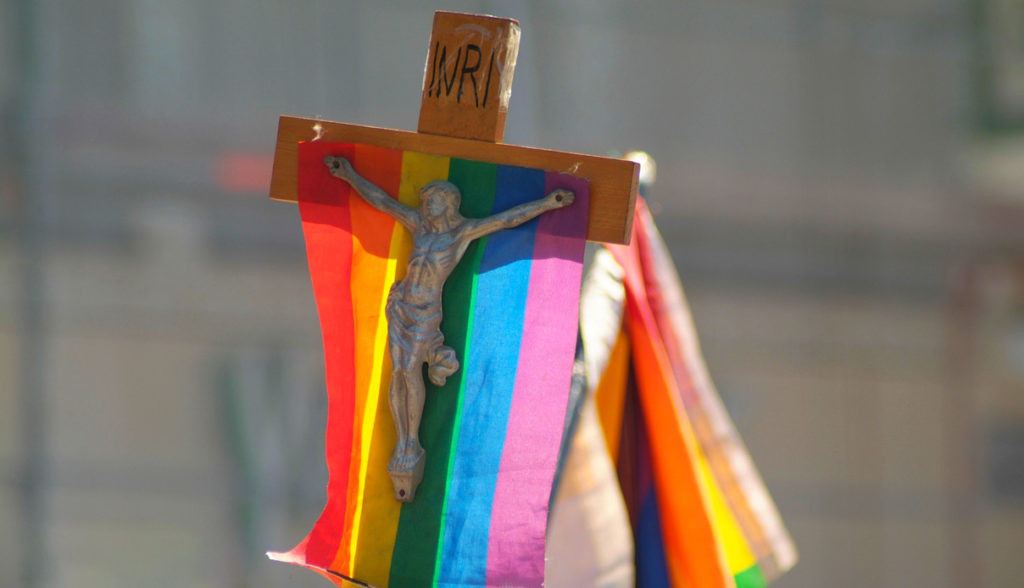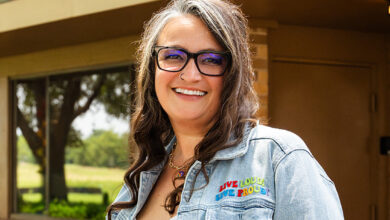

Let me start by saying that I am not a Catholic. I’ve visited Catholic churches and I’ve attended Catholic weddings, but otherwise I have no frame of reference for the intricacies and nuances of being or growing up Catholic.
But I do know when someone is being emotionally abused, and LGBTQ Catholics are being abused.
According to reporting on March 15 from reporter Nicole Winfield in the Washington Post,
The Vatican’s orthodoxy office, the Congregation for the Doctrine of the Faith, issued a formal response to a question about whether Catholic clergy have the authority to bless gay unions. The answer, contained in a two-page explanation published in seven languages and approved by Pope Francis, was “negative.”
The note distinguished between the church’s welcoming and blessing of gay people, which it upheld, but not their unions. It argued that such unions are not part of God’s plan, and that any sacramental recognition of them could be confused with marriage.
In other words, we recognize that you are here, but you’re not the same and you shouldn’t be expected to be treated as such. Please place your money in the offering plate and pass it along.
Y’all, that’s abuse. I know it’s abuse because every LGBTQ person in the world has been experiencing that abuse, in one form or another, forever. As I write this, there are politicians attacking transgender girls because they want to play sports in school. This ain’t new.
But one might expect that blessings are a fundamental part of a church’s life—or so I thought. Tobias Schaefer, provost of the Catholic cathedral in Worms, Germany, agrees. He said in response to the Vatican’s missive, “If the Church does not have the power to bless wherever people yearn for blessing, has it not abandoned its most fundamental duty? Blessings are not a way of passing a moral judgment!
And it’s ironic that a religious institution that is widely recognized for its ongoing cover-ups of child sex-abuse cases thinks that it is in any position to say anything to anyone about what is or is not a sin. When you’re as famous for raping children (and then covering it up) as you are for the Sistine Chapel, you’re in no position to talk.
I may not be speaking with the authority of the Pope, but I’m very clear on this fact: LGBTQ people and their relationships are not sinful, no matter what any institution says.
Many Catholic leaders have publicly come out against this demoralizing declaration—one whose collateral effect will no doubt impact all LGBTQ people, regardless of their religious affiliation or non-affiliation. Conversely, many conservative Catholics are overjoyed about this. How are LGBTQ Catholics supposed to feel? I know a lot of them were thrilled that Pope Francis thought about his many gay priests in 2017 and asked, “Who am I to judge?” Many of those queer Catholics took that as a ringing endorsement of their existence. Meanwhile, I’m like Shania Twain over here singing “That don’t impress me much.”
Again, I am not a Catholic and readily admit that I may not “get it” in the same way my Catholic friends do, but LGBTQ Catholics sometimes seem to me like lobsters in a pot who are getting excited that the water is starting to feel a bit toasty. I just want to sit them down, look them in the eye, and ask, “Why are you putting up with this shit?”
I do get that ties to one’s family church run deep for many people. And certainly, the Catholic Church is not the only religious institution that makes the lives of LGBTQ people a living hell. So in times like these, with abusers like this, those of us that know and respect LGBTQ Catholics (and the like) can only offer our support as they endure the slings and arrows of their tormentors.
One final note: Religion and spirituality, for those who experience and live it, can be a beautiful and wonderful thing. I am not against religion, although clearly my relationship with it is complicated. My personal belief is that you don’t necessarily need a church to love and serve God. We are all unique in how we approach (or don’t approach) faith. And though I cannot expect everyone to believe in the same way that I believe, we should all expect that we will be treated with love and respect—at the very least from our churches.










